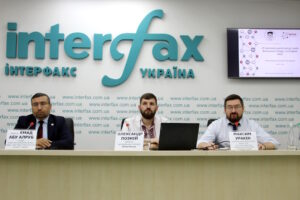
In the Southeast Asian region, Ukrainians have the most positive attitude toward Japan and South Korea. This is evidenced by the results of a joint study by the Experts Club think tank and the Active Group research company, presented at a press conference at Interfax-Ukraine on Thursday.
“Our research has shown that in East Asia, Ukrainians are most supportive of Japan and South Korea. Attitudes toward these countries largely depend on their support for Ukraine after the war began. In the Caucasus region, a positive attitude toward Georgia remains. Also, more than 50% of Ukrainians have a positive attitude towards Kazakhstan. The lowest level of support was recorded for such countries as the DPRK, Syria, and Iraq,” said Oleksandr Poznyi, director of the Active Group research company.

According to the expert, the negative attitude of Ukrainians toward China is also quite eloquent.
“Only 4% of citizens have a positive attitude toward China, 16.7% have a mostly positive attitude, 58.8% have a negative attitude, and 20% have not decided. Currently, China’s position is not entirely unambiguous in relation to Ukraine, which is reflected in the attitude of Ukrainians,” Mr. Poznyi emphasized.
In his turn, Maksym Urakin, founder of the Experts Club think tank and deputy director of the Interfax-Ukraine news agency, presented an analysis of Ukraine’s foreign trade with a number of Asian countries based on data from the State Customs Service for 2023.
“The largest market for Ukrainian goods in Asia is China – more than $2 billion. India ranks second, followed by Kazakhstan, Georgia, Iraq, and Indonesia. As for imports, China is also the largest importer to Ukraine, with more than $10 billion. It is followed by India, Japan, Korea, and Vietnam. In terms of total trade between Ukraine and these countries, China is also the leader, with almost $13 billion. India ranks second – 2.5 billion, followed by Japan – almost a billion,” said Urakin.

According to him, the analysis of economic data shows that Ukraine has significant trade ties with the countries of the Middle East and East Asia. At the same time, China remains one of our country’s largest trading partners in terms of both exports and imports.
“The problem of trade deficit remains, as Ukraine spends a lot of money on imports, while earning little on exports. This is a real problem. In 2023, Ukraine’s trade deficit with all countries is over $27 billion. The deficit with China is $8 billion. Among the countries represented today, we have a positive balance only with Iraq – almost $200 million in favor of Ukraine, Georgia – $100 million, and Armenia – $54 million,” Urakin added.
Chairman of the Ukrainian-Arab Business Council, member of the Council of National Communities of Ukraine Dr. Emad Abu Alrub emphasized that the importance of Ukraine’s relations with the countries of Asia and the Arab world cannot be overestimated, and Ukraine is currently taking important steps to develop these relations.
“Ukraine has significant opportunities in the markets of Arab countries, which have a total population of over 550 million. Arab countries are a permanent market for our goods. After 2014, new markets opened up for our country, especially in Asia. The Ukrainian Arab Business Council is actively working to develop these relations. We need to create a strategic plan to improve relations at the level of economy, politics, and culture. We have significant chances for success, but we need better communication and marketing,” emphasized Dr. Abu Alrub.

He also added that Saudi Arabia is interested in cooperating with Ukraine by investing not only in trade, but also in agriculture, technology, and other projects. Other interesting countries are the UAE, Qatar, and Egypt. All of them also have great potential for investment in Ukraine.
In conclusion, Maksym Urakin called on foreign embassies to be more active in establishing communication with Ukrainian society.
“If you can, please provide information to journalists about what you are doing here, how you are helping in the humanitarian sphere. Through these ties, we will deepen our cooperation, because the way Ukrainian citizens view your countries also depends on your work,” he concluded.
ACTIVE_GROUP, ALEXANDER_POZNYI, EAST_ASIA, ECONOMY, EXPERTS_CLUB, MAXIM_URAKIN, MIDDLE_EAST, SOCIOLOGY, SURVEY

The survey, conducted by Active Group in cooperation with the Experts Club think tank, revealed citizens’ attitudes to various aspects of social and economic life in Ukraine, including the initiative to refund part of the cost of Ukrainian goods, the government’s influence on business, the level of trust in law enforcement, financial stability of citizens, and forecasts for the hryvnia exchange rate.
A significant proportion of respondents (44%) have heard of the initiative to refund the cost of purchasing Ukrainian goods, with opinions divided on its impact on living standards. Most respondents believe that the government will increase taxes to finance this initiative.
According to Andriy Yeremenko, founder of the sociological research company Active Group, this raises concerns among the population, as most are not ready for an increase in the fiscal burden.
The study also revealed a deep distrust of government institutions (57% of citizens) and law enforcement agencies (62%) in the context of relations with business, in particular due to the lack of transparency and efficiency of their work. The majority of respondents believe that the state hinders rather than helps business to develop, and this trend has increased compared to previous months.
A significant number of Ukrainians (up to 60%) are experiencing financial difficulties, including increased debt and lack of savings for a rainy day. Respondents also expressed concern about the future of the hryvnia exchange rate, with the majority (55%) expecting it to fall.
In the context of utility bills, the vast majority (67%) of respondents believe that the level of tariffs is too high, which further emphasizes the general dissatisfaction with the financial situation and government policy in this area.
According to Oleksandr Poznyi, Director of Active Group, these results demonstrate the serious challenges faced by Ukrainian society in the context of the war and the current economic situation.
Earlier, Maksym Urakin, the founder of the Experts Club think tank, noted that in 2024 Ukraine’s public debt may exceed GDP for the first time, which poses significant risks to economic stability in the country.
For more details, please see the video at the link:
https://www.youtube.com/watch?v=8hkvHhyzGLQ
You can subscribe to the Experts Club channel here:
ACTIVE_GROUP, ANDRIY_EREMENKO, ECONOMY, EXPERTS_CLUB, OLEXANDR_POZNYI, POLITICS, SOCIOLOGY, TAXES, URAKIN